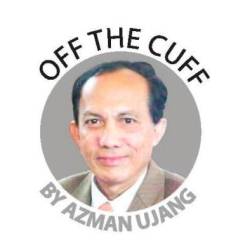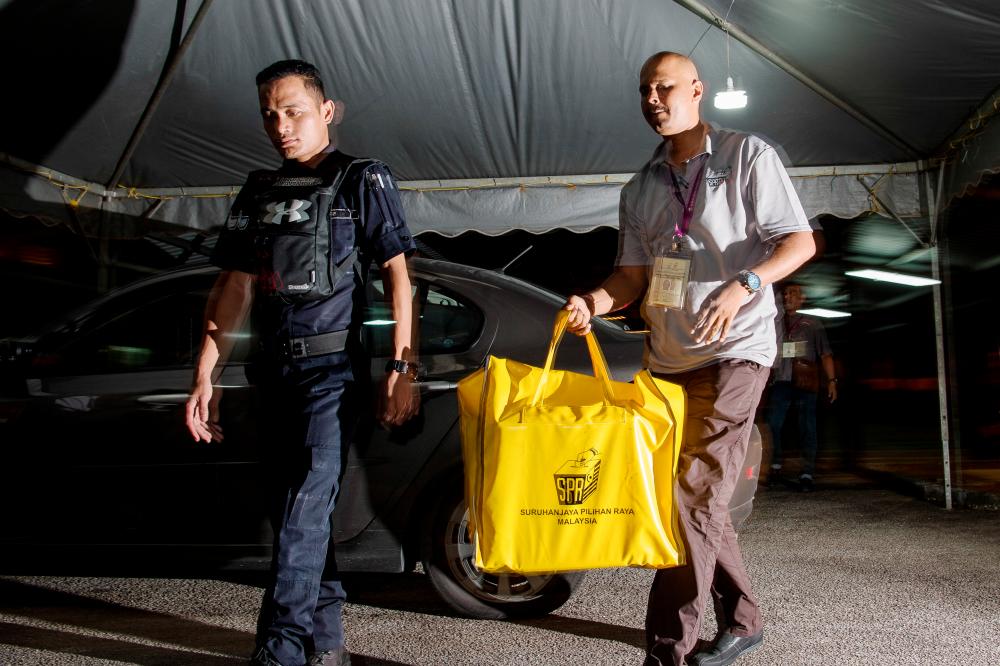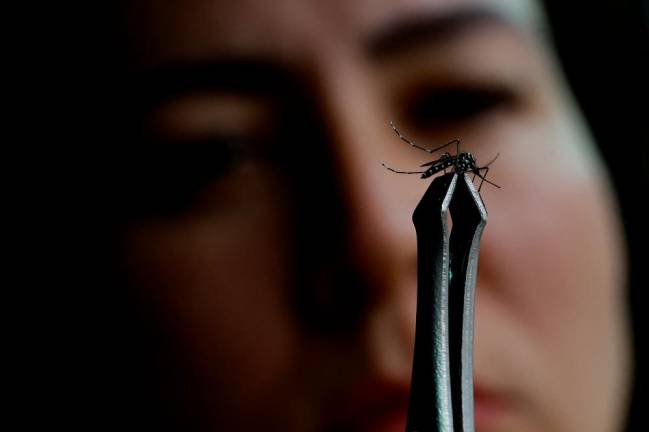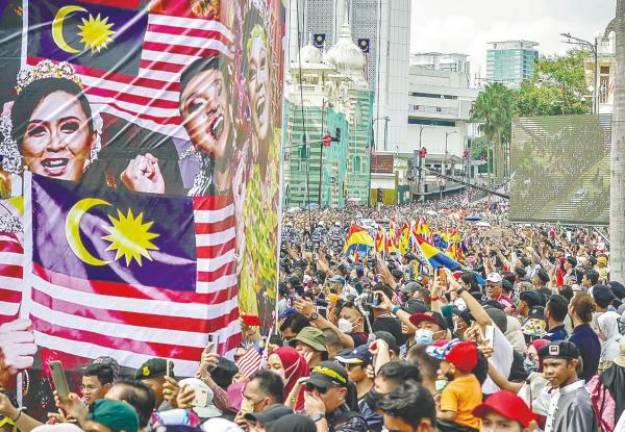IF there is anything that should be given top priority in the nation’s affairs now, it is that of enacting the Anti-Party Hopping law. The earlier this is done, the better, and everyone can heave a huge sigh of relief of not having to go through further political turmoils that have actually cost a lot of damage both financially and socially.
The latest example is the state election in Malacca, where voters are going to the polls on Nov 20 amidst the ongoing Covid-19 pandemic, just because of the actions of four state assemblymen. They withdrew their support for the previous Umno-led state government to cause its downfall upon losing its majority, following which the state assembly was dissolved, thus paving the way for the coming polls.
This is the first time in the nation’s history that a state in mainland Malaysia is forced to stage a separate election at state level from the national or general election, a phenomenon not unusual to Sabah and Sarawak.
Elections, whether at state or national levels, as we all know are expensive affairs and the hundreds of millions of hard-earned taxpayers’ money could have been saved and put to better use if not for party hopping yet again among elected representatives in our legislatures.
Those who have caused such a change of government mid-stream, although the electorate gave them the mandate to rule for a full five-year term, would not have done so if there had been an Anti-Party Hopping law.
Such a political coup to betray the people’s mandate started in Sabah in 1994 when Parti Bersatu Sabah led by Tan Sri Joseph Pairin Kitingan, dubbed the paramount chief of Sabah’s majority Kadazan community, was re-elected for another term but yet failed to form the government.
Several of its newly-elected lawmakers crossed over to the losing Barisan Nasional coalition and subsequently a new terminology – political frog – was added to the political landscape. This political frog culture was “exported” to Peninsular Malaysia when the Perak state government, made up of PKR, DAP and PAS in 2008 that toppled the Barisan Nasional, collapsed after only 11 months in office.
And Sabah was the scene of yet another damage the non-existent Anti-Party Hopping law has done following the 14th General Election in May 2018. The polls ended with none of the three coalitions of parties securing a simple majority of 31, and again party hopping led to Parti Warisan Sabah, with the support of several hoppers, forming the state government, ending then incumbent chief minister Tan Sri Musa Aman’s 15-year grip on power.
Warisan president and Chief Minister Datuk Seri Shafie Apdal was on course to leading the state till the 15th general election due in 2023 but his government was cut short by yet another series of party hopping last year while the Covid-19 pandemic was raging fast and furious. But there was a difference this time around. Instead of just handing over to the Umno-led coalition that triggered the party hopping, Shafie decided on seeking a fresh mandate through a snap election that was held in September last year.
To refresh our memories, holding the Sabah election at the time, although necessary by law, sparked deep concerns among everyone (except the party hoppers) of further spikes in Covid-19 infections. It was held anyway and the incumbent Parti Warisan was defeated. What followed was thousands of new Covid-19 clusters appeared, causing panic, anxiety and sleepless nights to the already overworked Health Ministry frontliners and its leadership. May I repeat here, if only we had the Anti-Party Hopping law.
But all this pales in comparison to what happened at the national or federal level since the GE14 in 2018. The Pakatan Harapan coalition led by Tun Dr Mahathir Mohamad that toppled Umno from power for the first time in 61 years lost it some 22 months later following a spate of party hoppings. In came the Perikatan Nasional pact that saw Bersatu President Tan Sri Muhyiddin Yassin appointed as prime minister in March last year.
Yes, he made history of making it to the coveted post of prime minister but he was also the shortest serving prime minister, for only 17 months, before several Umno Members of Parliament withdrew their support.
Japan or Italy is notorious for its rather regular change of prime ministers after serving for a fairly brief period by the standard of most countries but since 2018, Malaysia certainly holds the record. We have had four prime ministers in Datuk Seri Najib Razak, Mahathir, Muhyiddin and in August, the most surprising of them all, Datuk Seri Ismail Sabri Yaakob.
After GE14 in 2018, there is no longer the luxury of the ruling government, both at the Federal and most state governments, with a two-thirds majority as in the past.
The rakyat can only hope that there is no more Malacca-like stunts to be pulled by the Yang Berhormats from both sides of the political divide that will lead to more instability or worsening the political pandemic, as some would call it.
Are we still a long way off from enacting this much-needed Anti-Party Hopping law? Law Minister Datuk Seri Wan Junaidi told me that the proposed Anti-Party Hopping Bill is still a “work in progress”.
As he put it: “It is a slow process to teach unprincipled Malaysians to accept the concept of trustworthiness and integrity.
“The law is to be designed to give freedom envisaged in the Federal Constitution, but to teach the elected representatives to be principled”.
In my view, the proposed law must be designed to outlaw anti-party hopping once and for all. If it is not consistent with the Federal Constitution, then it is incumbent for all lawmakers from both sides of the divide to support the necessary amendments to facilitate the passage of the Anti-Party Hopping law. Anything short of that is like going back to square one.
At the end of the day, putting an end to party hopping is the ultimate respect for the people’s mandate, otherwise what is the the purpose of elections? It is obvious that an effective Anti-Party Hopping law is the only vaccine that can cure our political pandemic.














